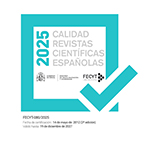Use of natural fertilizers and biocides in Aymara peasant agriculture in Puno (Peru)
Abstract
The research deals with the use of natural composts and biocides in Aymara peasant agriculture in the province of El Collao Ilave-Puno, currently the peasant families in their daily work carry out ancestral practices to guarantee agricultural production and control plague such as infestation of the weevil of The Andes. The objective is to explore and describe the traditional practices of use of composts. The procedure used was the ethnographic and interpretive method, the techniques selected are: interview, participant observation and performance, which facilitated the collection of information. As a conclusion of this research, the survival of the peasant knowledge of the application of natural fertilizers and biocides based on natural plants, minerals and human urine is exposed, and they are practiced in their different agricultural processes in order to ensure production, control plague and diseases of the different cultivation plots.
Downloads
Article download
License
In order to support the global exchange of knowledge, the journal Anales de Geografía de la Universidad Complutense is allowing unrestricted access to its content as from its publication in this electronic edition, and as such it is an open-access journal. The originals published in this journal are the property of the Complutense University of Madrid and any reproduction thereof in full or in part must cite the source. All content is distributed under a Creative Commons Attribution 4.0 use and distribution licence (CC BY 4.0). This circumstance must be expressly stated in these terms where necessary. You can view the summary and the complete legal text of the licence.












